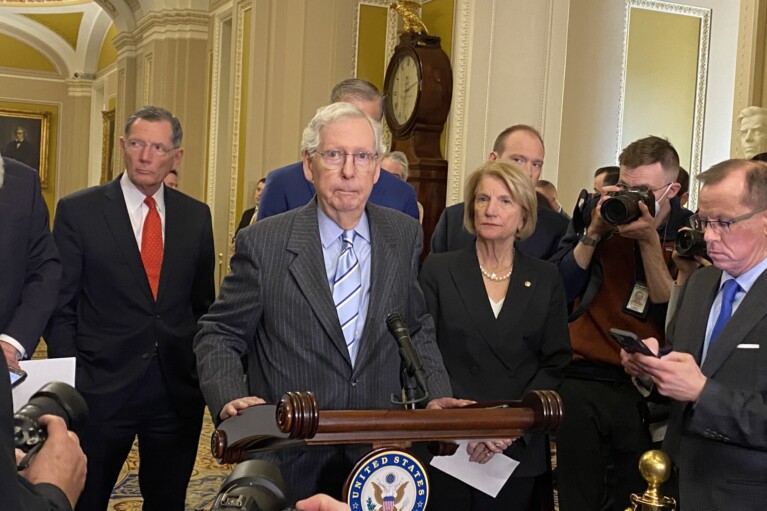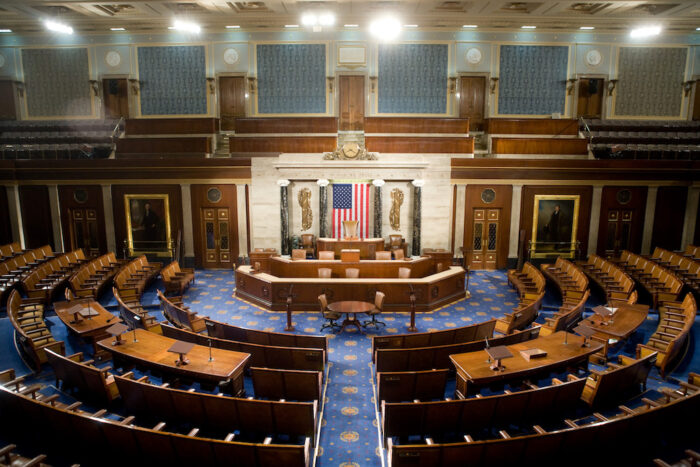In Wake of Va.’s Blue Wave, Congress Renews Push for ERA

The U.S. House advanced a resolution on Wednesday that aims to ease the ratification of a Constitutional amendment that would ensure equality for U.S. citizens under the law, regardless of their sex.
The Equal Rights Amendment was first introduced in Congress in 1923 and was passed overwhelmingly by the House and Senate in the 1970s, but has failed to win approval by the 38 states needed for ratification. In 2017, Nevada became the 36th state to ratify the ERA and Illinois last year became the 37th state to do so.
Now, backers of the amendment are pinning their hopes on Virginia after this month’s elections handed Democrats control of both houses of the Virginia General Assembly. The state is widely expected to ratify the ERA after Democrats assume power in January.
But there are some thorny legal issues that could complicate the process and are almost certain to land the matter in the courts if Virginia or another state does become the 38th state to ratify the ERA.
One prominent issue: a congressional deadline imposed when Congress passed the ERA. Lawmakers initially set a March 1979 ratification deadline for states, which was later extended to June 1982. But the amendment still hadn’t gotten the backing of 38 states when that deadline expired.
On Wednesday, the U.S. House Judiciary Committee attempted to nullify that deadline entirely.
The panel voted 21-11 along party lines to approve a resolution from Rep. Jackie Speier (D-Calif.) that would remove the deadline initially laid out in 1972. Rep. Jamie Raskin (D), the lone Marylander on Judiciary, voted in favor of the measure.
“One of the best ways to defend the Constitution is to expand the Constitution,” Raskin said. “… The whole trajectory of our constitutional development is about expanding democracy to include people who had been subordinated or marginalized or kept outside of equality.”
The resolution, which now heads to the full House for a vote, has the backing of 217 co-sponsors, including two Republicans, Reps. Brian Fitzpatrick of Pennsylvania and Tom Reed of New York.
Sen. Benjamin L. Cardin (D-Md.) has introduced a Senate version of the resolution to remove the ERA deadline. His effort has the backing of Sens. Lisa Murkowski (R-Alaska), Susan Collins (R-Maine) and Angus King (I-Maine). But it’s unclear whether the effort will gain traction in the GOP-controlled Senate.
House Democrats hailed Wednesday’s vote as a historic event, lamenting the fact that the ERA hasn’t yet been added to the Constitution.
“Unfortunately, despite existing protections, in troubling ways, women’s rights have begun to slide backwards in recent years,” said House Judiciary Committee Chairman Jerrold Nadler (D-N.Y.). “For instance, the Trump Administration continues an onslaught of threats to women’s rights on a regular basis,” he added. “Also, women still have uneven protections against other forms of discrimination and against harassment in the workplace.”
But Republicans on the panel warned that Congress can’t do away with the deadline set decades ago.
Congress does “not have the constitutional authority to retroactively revise a failed constitutional amendment,” said Rep. Doug Collins of Georgia, the top Republican on the Judiciary panel. He accused Democrats of attempting to subject citizens in all 50 states to the “current political trend in just one state.”
Collins said that backers of the ERA have no choice but to “start the whole process over.”
Republicans also said that adding the ERA to the Constitution would limit states’ ability to impose limits on abortions.
“It is well understood that the language used in the ERA would not protect women but would prevent states’ voters from enacting any limits on abortion up to the moment of birth,” Collins said.
According to the abortion rights advocacy group NARAL, ratification of the ERA “would reinforce the constitutional right to abortion by clarifying that the sexes have equal rights, which would require judges to strike down anti-abortion laws because they violate both the constitutional right to privacy and sexual equality.”
Some of the ERA’s supporters, meanwhile, have downplayed a connection between the ERA and abortion rights. Speier, the lead sponsor of the resolution that passed the committee on Wednesday, said earlier this year that the ERA is “no stalking horse for abortion,” and emphasized that the proposed amendment isn’t a ploy to enshrine additional abortion protections, Vice reported.
Besides Virginia, the other states that haven’t ratified the ERA are: Arizona, Utah, Florida, Georgia, North Carolina, Oklahoma, Missouri, Arkansas, South Carolina, Mississippi, Louisiana and Alabama.



 Creative Commons Attribution
Creative Commons Attribution